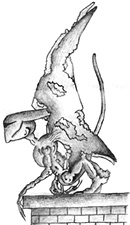All Nonfiction
- Bullying
- Books
- Academic
- Author Interviews
- Celebrity interviews
- College Articles
- College Essays
- Educator of the Year
- Heroes
- Interviews
- Memoir
- Personal Experience
- Sports
- Travel & Culture
All Opinions
- Bullying
- Current Events / Politics
- Discrimination
- Drugs / Alcohol / Smoking
- Entertainment / Celebrities
- Environment
- Love / Relationships
- Movies / Music / TV
- Pop Culture / Trends
- School / College
- Social Issues / Civics
- Spirituality / Religion
- Sports / Hobbies
All Hot Topics
- Bullying
- Community Service
- Environment
- Health
- Letters to the Editor
- Pride & Prejudice
- What Matters
- Back
Summer Guide
- Program Links
- Program Reviews
- Back
College Guide
- College Links
- College Reviews
- College Essays
- College Articles
- Back
The Chinese Dragon Boat Festival
Duan Wu Jie, the Double Fifth Day, is the Chinese Dragon Boat Festival. This holiday is held on the fifth day of the fifth month of the year. It is held to commemorate the poet Qu Yuan, who drowned in the Milou River in 221 BC. Duan Wu Jie has been held every year since then. Many things are done during the festival, but the most important are the dragon boat races.
There are many legends about how this festival came to be, but the death of Qu Yuan, is the most accepted version. Legend states that Qu Yuan was once a minister and poet of the Zhou Emperor. The other advisors of the emperor pressured him into exiling Yuan because they felt threatened by him. After being exiled, Qu Yuan continued on teaching and writing his poems until he heard the news that the Zhou had been defeated by the Qin. Then, in despair, Qu Yuan threw himself into the waters of the Milou River, where he clung to a large rock until he died.
Yuan was so greatly loved by the empire's people that they set out in many boats to find his body. They threw a food called zongzi into the water to feed the fish so they wouldn't feed on the great poet's body. It was never made known if they found Qu Yuan's body or not.
Zongzi is the traditional food of the Dragon Boat Festival, probably because of how the people threw it into the water to prevent the fish from eating Qu Yuan's body. It is a rice ball, filled with different things like eggs, beans, and fruits, and wrapped in corn leaves. They are usually steamed before eaten.
The dragon boats are a magnificent thing to behold. Brightly painted canoes, which measure anywhere from 40 to 100 feet long, are decorated in extraordinary detail. Depending on how long the boat is, it can be powered by as many as 80 rowers. The bow is decorated to look like the face of an open-mouthed dragon; the stern, a dragon's tail.
After races, the head and tail are taken off of the canoe and stored someplace safe until the next year's race. The races are exciting for participants and spectators alike. It doesn't matter how many canoes are in the race; it only matters who gets the flag at the end of the course first.

Similar Articles
JOIN THE DISCUSSION
This article has 3 comments.

_______________________
http ://world-culture-research.org/c.asp?d=15612